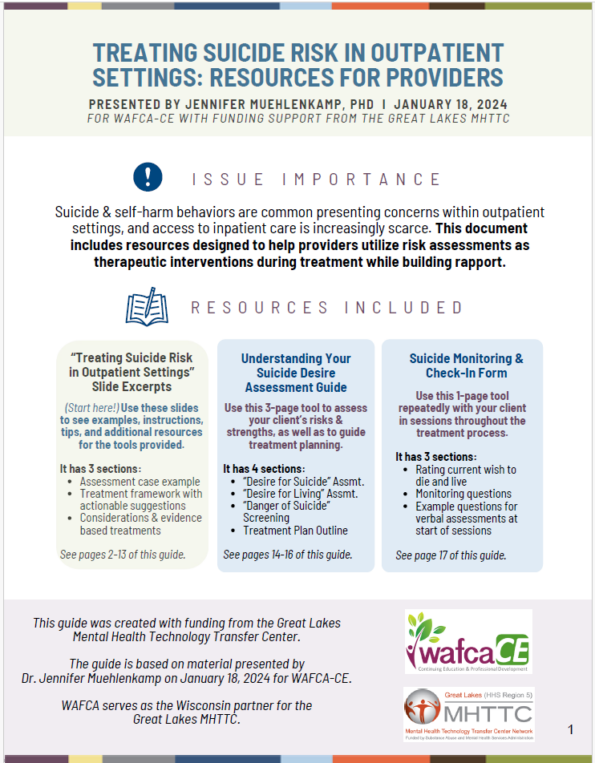
Suicide & self-harm behaviors are common presenting concerns in outpatient settings, and access to inpatient care is increasingly scarce. This document includes resources designed to help providers utilize risk assessments as therapeutic interventions during outpatient treatment while also building rapport.
This guide was created by our valued partners at WAFCA and is based on material presented by Dr. Jennifer Muehlenkamp on January 18, 2024 for WAFCA-CE.